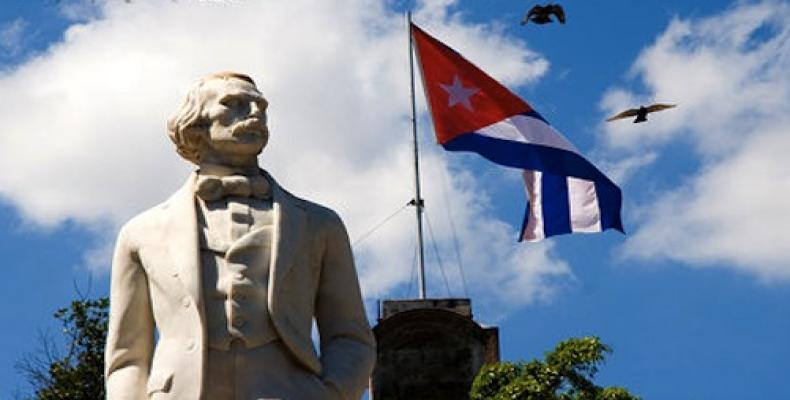
The commemoration in Cuba of the 154th anniversary of the beginning of the independence struggles has a deep symbolism, at a time when hundreds of thousands of the inhabitants of this archipelago are trying to repair the severe damages caused by a hurricane, under material circumstances of shortages.
By Roberto Morejón
The commemoration in Cuba of the 154th anniversary of the beginning of the independence struggles has a deep symbolism, at a time when hundreds of thousands of the inhabitants of this archipelago are trying to repair the severe damages caused by a hurricane, under material circumstances of shortages.
In the eastern part of the Caribbean nation, Carlos Manuel de Céspedes, on October 10, 1868, freed the slaves in his plantation and invited them to join the fight for Cuba's emancipation, thus starting the wars for independence.
Today a crusade is underway against the misfortune left by the intense hurricane Ian, which with force 3 on the Saffir-Simpson scale of a maximum of five, hit the country on September 27.
The storm caused partial or total damage to 83,000 homes in the western province of Pinar del Río alone.
Hundreds of groups of electricity workers went there, who in very difficult conditions are gradually restoring the connection to a province that came to zero as a result of the cyclone's crossing from south to north.
It was not the only one hit, but although the storm mainly affected the west of the archipelago, the rest of the archipelago also suffered a general blackout, derived from the natural catastrophe.
From the less affected region began an offensive towards the west, mainly Pinar del Río, which reedited patriotic events of the struggles of Cubans against Spanish colonialism and the dictatorship of Fulgencio Batista.
From the east and center, electricity workers, water resources, civil servants, young people and other forces have moved to the aforementioned territory to support the recovery.
Donations are also being sent from Havana, Mayabeque and Artemisa, with traces left by Hurricane Ian.
So do young entrepreneurs from the capital who call themselves Los Angeles de la Noche (The Night Angels).
No one is unaware of the fact that such a large mobilization comes up against resource limitations in a country battered by the U.S. blockade.
However, the State appeals to scarce reserves and receives international solidarity. With this, it is trying to create an arsenal to help the victims.
It is understandable that NOT a few of the latter reacted with initial bewilderment to the passing of the powerful meteorological phenomenon.
But gradually they began to join the groups engaged in the restoration of roofs, poles and power lines as well as obstructed roads.
Pinareños and the rest of Cubans are now carrying a torch, like yesterday's mambises, to make their way in the midst of adversity, knowing that the light will guide them on the road to rehabilitation.

